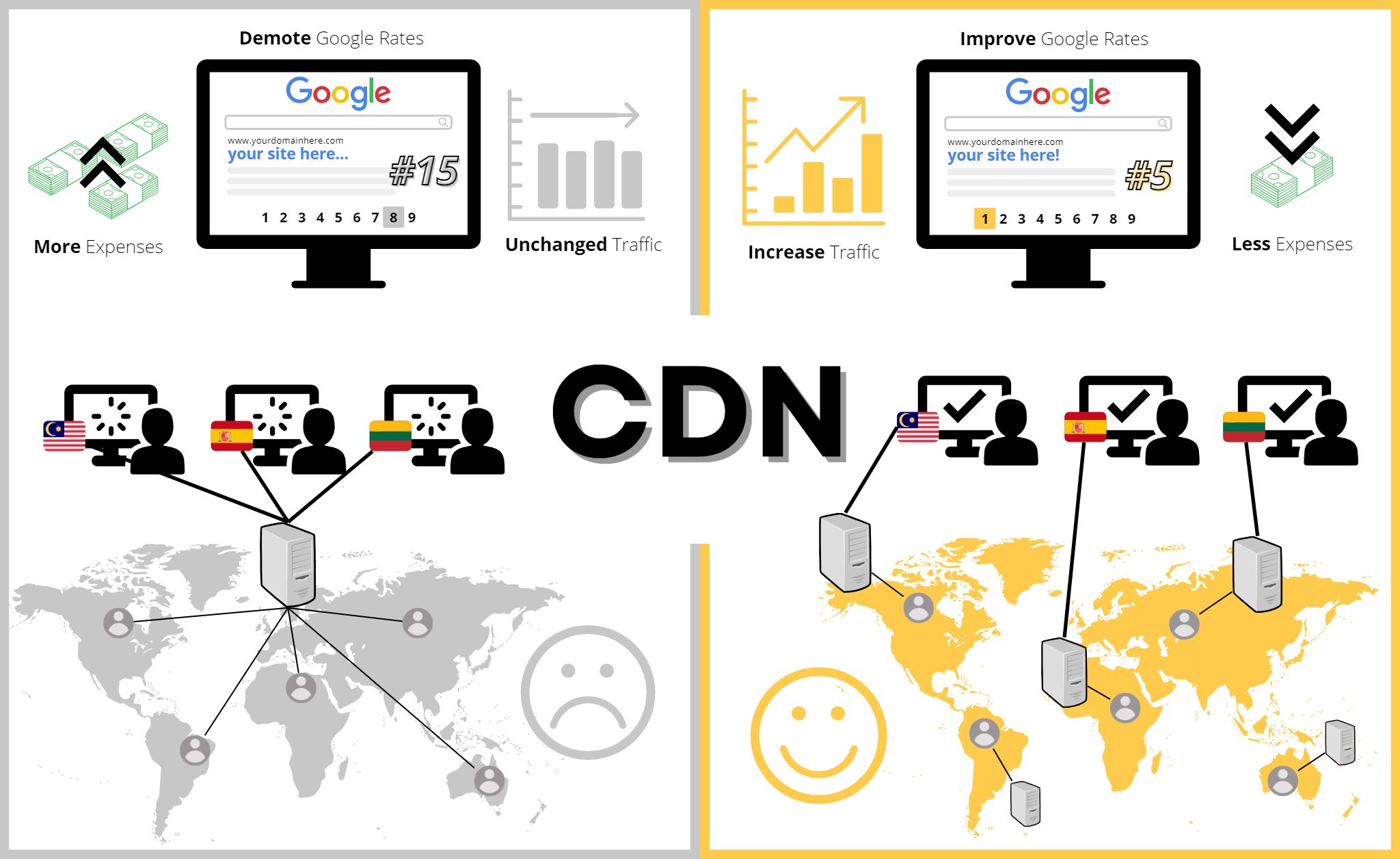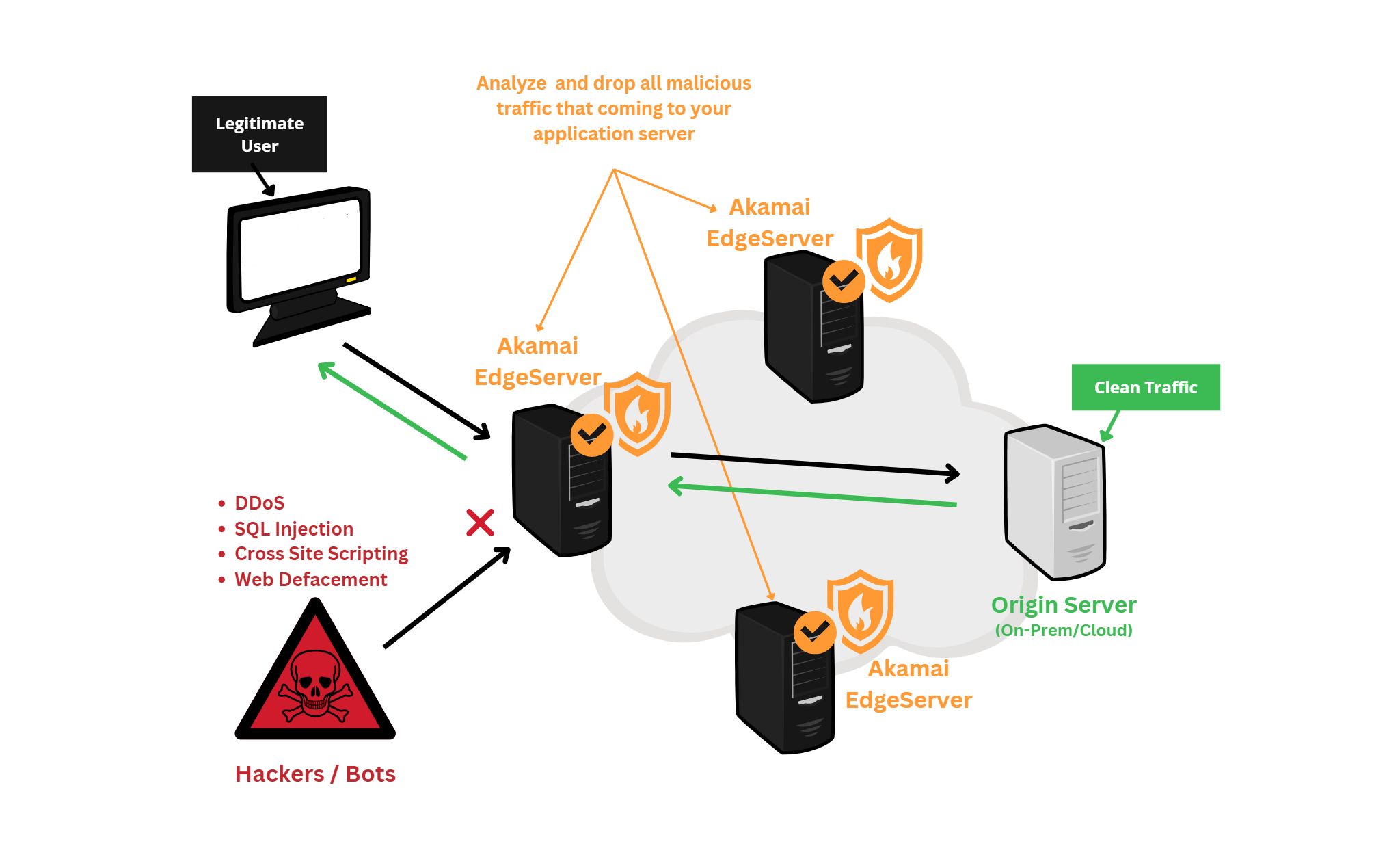- Content Delivery Network (CDN)
A CDN (Content Delivery Network) is a highly-distributed platform of servers that helps minimize delays in loading web page content by reducing the physical distance between the server and the user. This helps users around the world view the same high-quality content without slow loading times.

Key Features:
- Faster loading webpage and shorter traffic latency due to dynamic local caching where user to access content at the nearest caching server rather than original server.
- Reducing bandwidth consumption of the original server due to local caching and TCP optimisation where 60% of bandwidth load supported by local cache server.
- Improve content availability where CDN network is able to accommodate large amounts of traffic with supreme redundancy of network architecture.
- A typical CDN provider embed with DDoS security protection to protect the server from any malicious DDoS attack that would severely affecting the services.
- Web Application & API Platform (WAAP)
A Web Application & API Platform (WAAP) is a specific form of application firewall that filters, monitors, and blocks HTTP traffic to and from a web service. By inspecting HTTP traffic, it can prevent attacks exploiting a web application's known vulnerabilities, such as SQL injection, cross-site scripting (XSS), file inclusion, and improper system configuration


Key Features:
- Clean Traffic before enter internal network.
- Internal security appliance work efficiently (low load).
- DDoS attack tackled at cloud layer without attacker have to reached targeted host.
- BOT can be filtered (bad and/or good bot).
- SLA 100% uptime by Akamai.
- Akamai Includes CDN / static web caching – accelerate web response experience.
- SSL Certificate
Secure Socket Layer (SSL) certificate is a type of digital certificate that provides authentication for a website and enables an encrypted connection. These certificates communicate to the client that the web service host demonstrated ownership of the domain to the certificate authority at the time of certificate issuance.
SSL certificates ensure all data passed between the two parties remains private and secure, SSL encryption can help prevent hackers from stealing private information such as credit card numbers, bank information, names, and addresses.
- DNSSec
Domain Name System Security Extensions (DNSSEC). DNSSEC protects the internet community from forged DNS data by using public key cryptography to digitally sign authoritative zone data when it comes into the system and then validate it at its destination.
If you're running a website, especially one that handles user data, then enabling DNSSEC is critical to prevent any DNS attack vectors. Once DNS is hijacked, the user may end up interacting with an imposter site instead of the actual site.
- IPv6
Internet Protocol version 6 is the latest version of the Internet Protocol, the communications protocol that provides an identification and location system for computers on networks and routes traffic across the Internet. IPv6 uses 128-bit addressing to support approximately 340 trillion trillion unlike the previous version, IPv4, uses a 32-bit addressing scheme to support 4.3 billion devices only which was deemed not enough with the advent of rapid growth of the internet, personal computers, smartphones and Internet of Things (IoT) devices.
Critically, IPV6 provides more efficient routing and packet processing and increases security.
